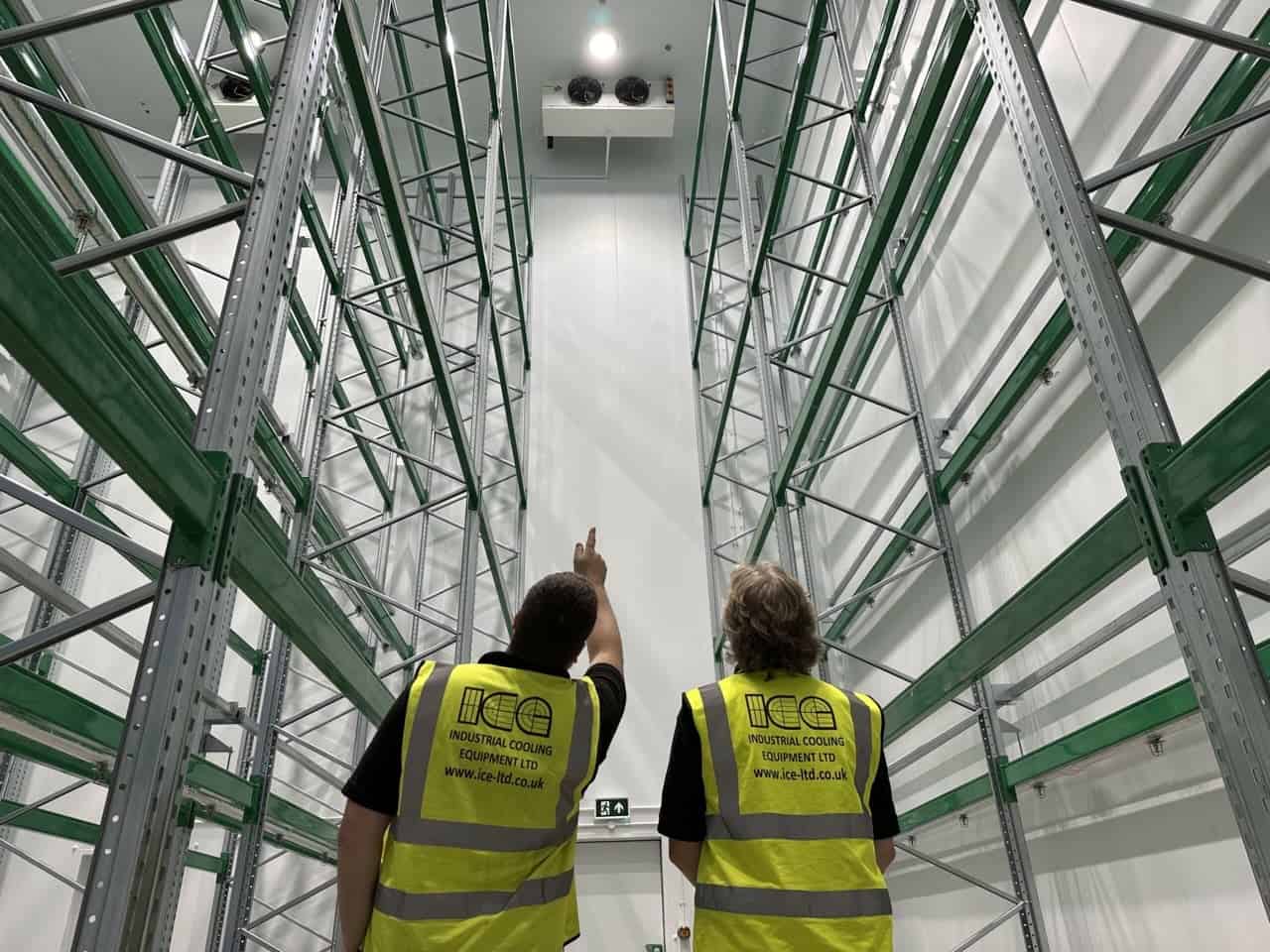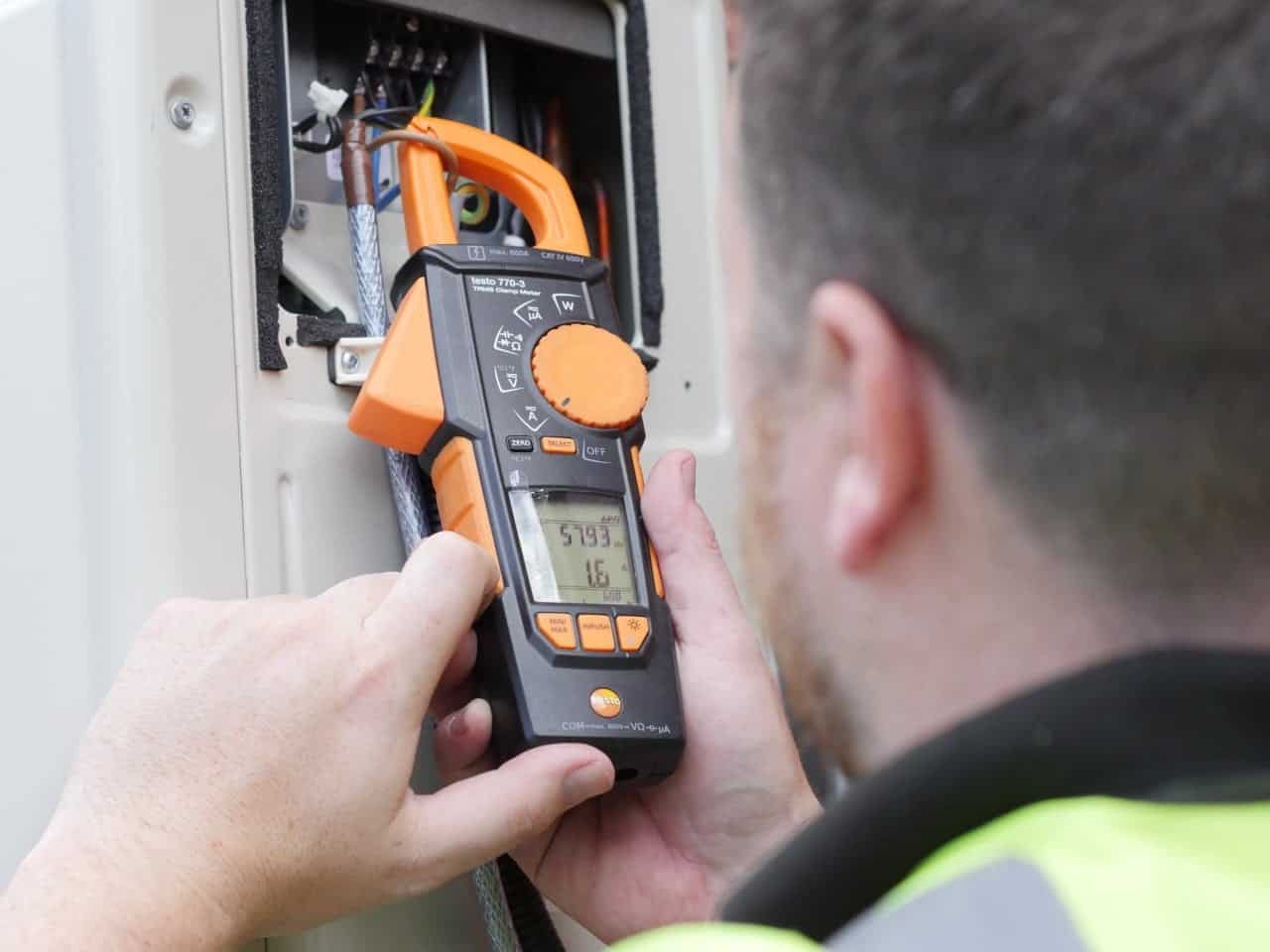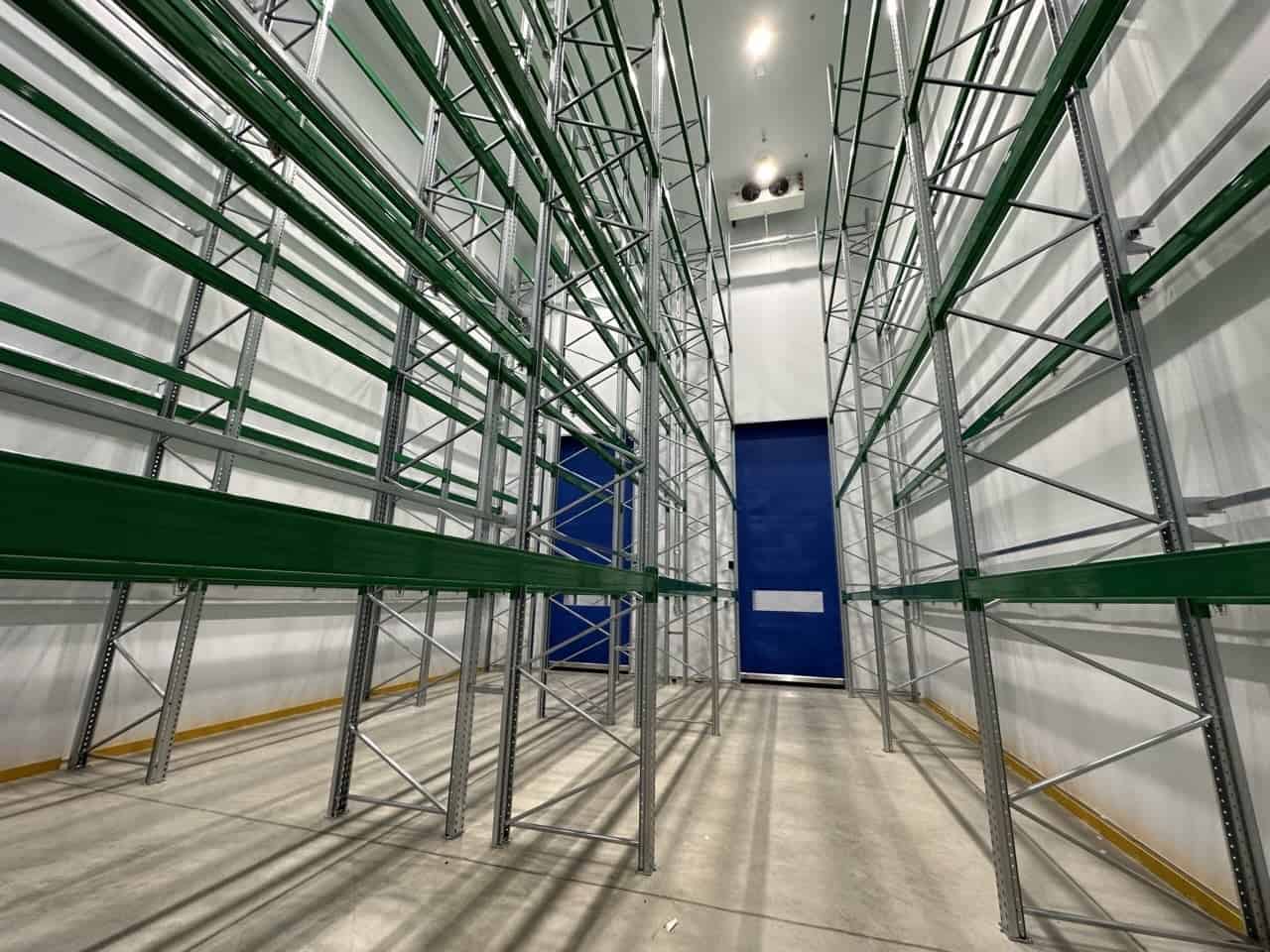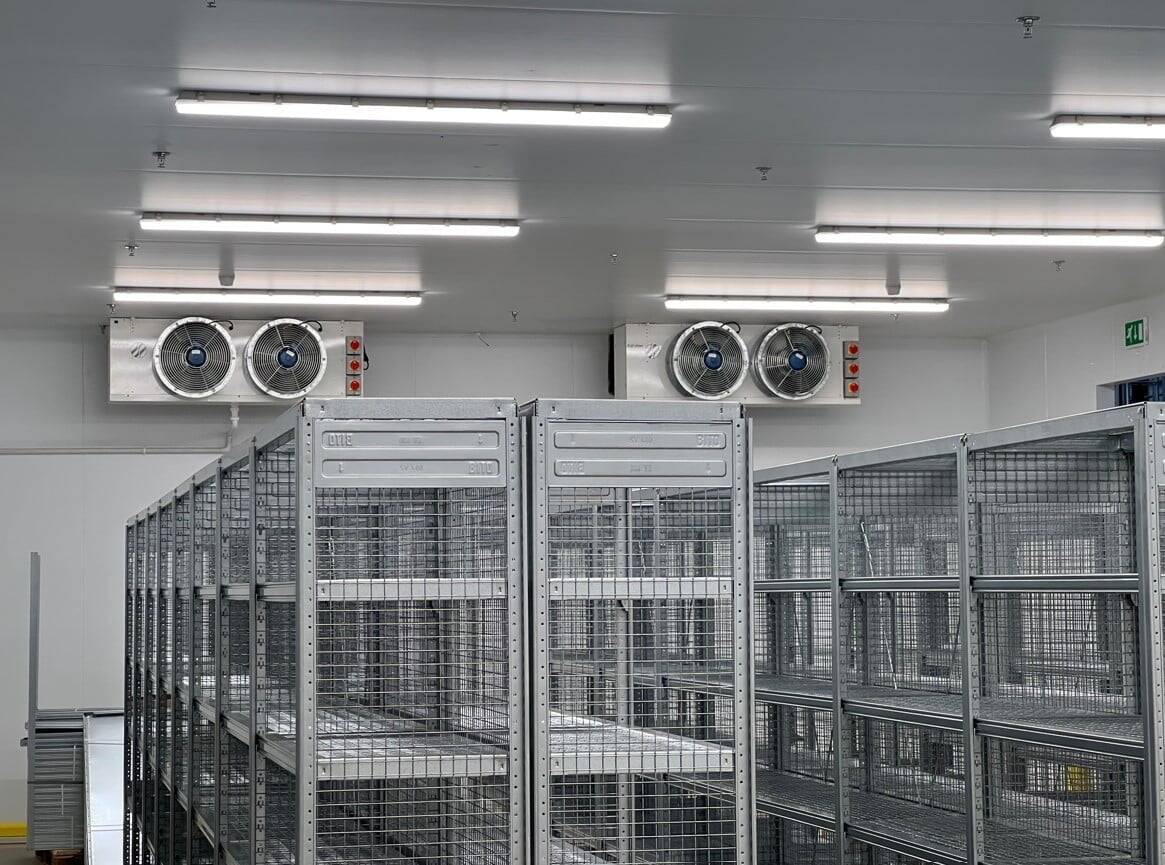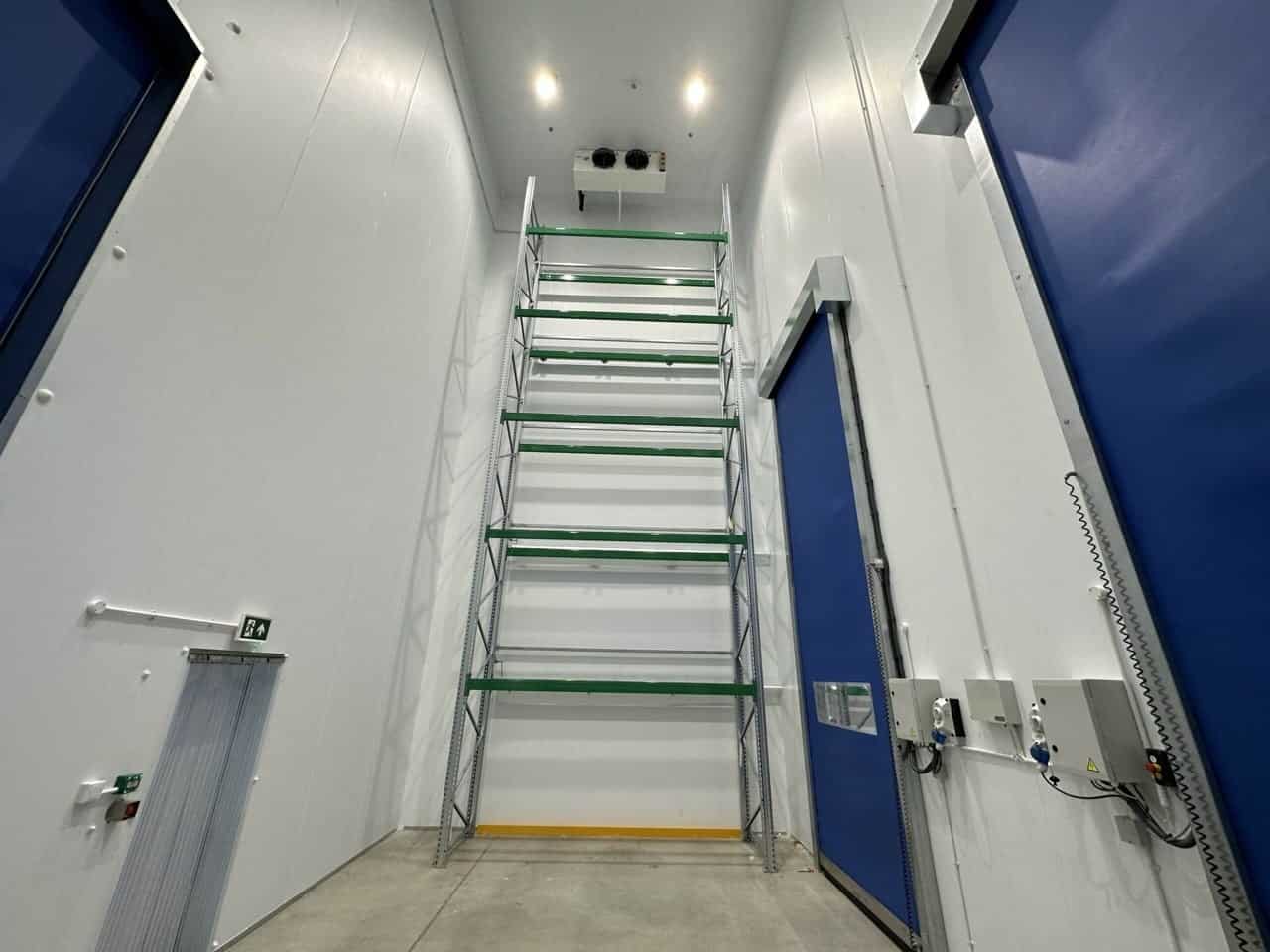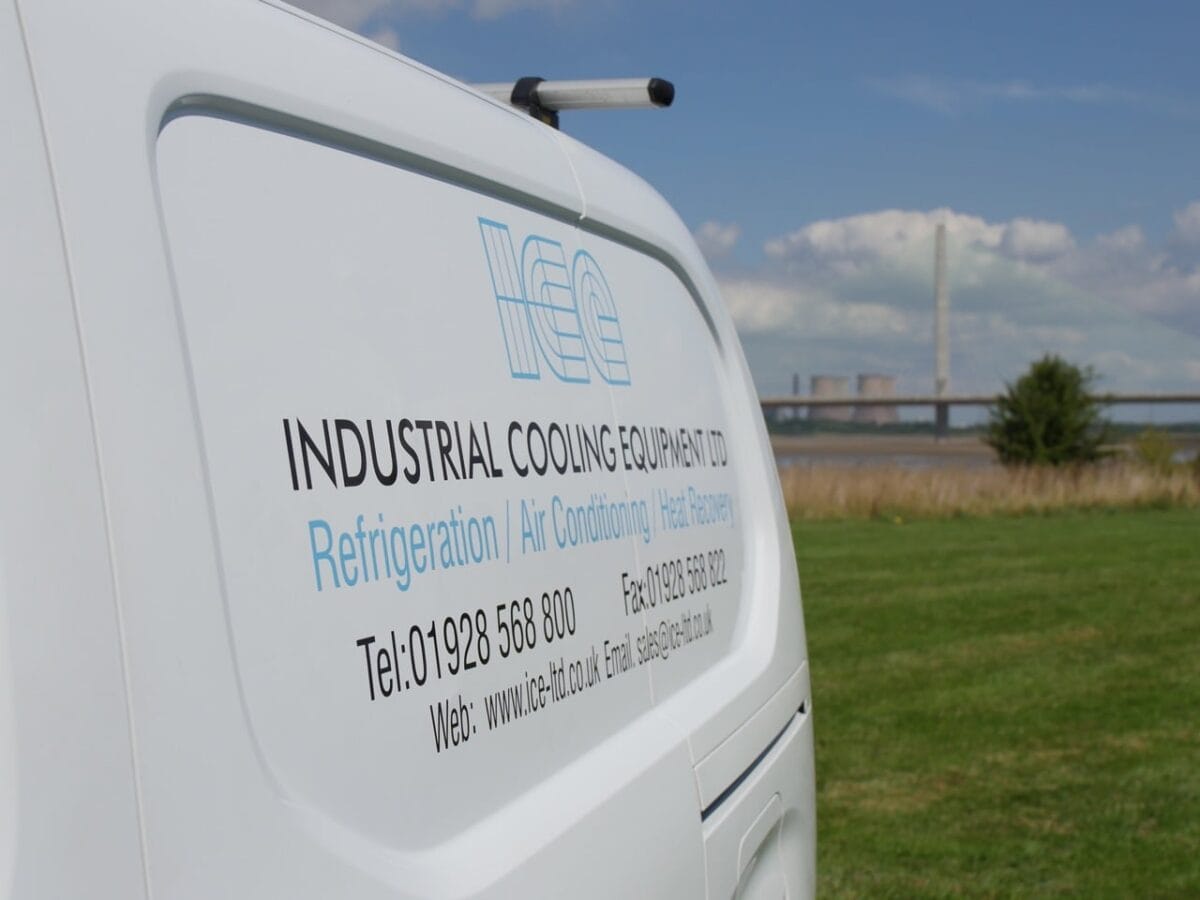Cold rooms are a versatile and efficient means by which to preserve perishable items at a consistently low temperature. They are used across a range of settings and industries where precise temperature control is required. But what are cold rooms and what are they used for, what should a cold room temperature be, and who might need a cold room?
What is a cold room?
A cold room is a specially constructed insulated room or enclosed space that has been designed to maintain a consistently low temperature. They’re designed to preserve perishable items, preventing the deterioration of food, pharmaceuticals, and other temperature-sensitive items. They’re fitted with cooling systems, insulation, and temperature control systems to ensure optimal storage conditions. Find out everything you need to know about a cold room installation.
What is a cold storage room?
A cold storage room is another name for a cold room. It’s a specially designed enclosed space where a consistently low temperature is maintained. It differs from storage facilities for non-perishable items due to the low temperature it retains.
Why is it called a cold room?
A cold room is so-called because it provides a large, cold environment that’s suitable for storing perishable items. The name describes its purpose, distinguishing it from other forms of rooms or cold storage facilities that are designed for different temperature ranges. For instance, a business may have storage rooms for non-perishable items alongside a cold room for protecting the integrity of perishable items.
What are cold rooms used for?
Cold rooms are used widely across different industries and applications where temperature-controlled storage is essential.
These include:
Food storage and processing
Cold rooms are used extensively across restaurants, supermarkets, and food processing facilities. They provide flexible and convenient cold storage for perishable food items, such as meat, fruit, vegetables, and dairy products, ensuring an optimal temperature to preserve shelf life while maintaining freshness.
Industrial applications
Cold rooms are used across manufacturing processes and research facilities where precise temperature control is essential for materials and products. Industries such as aerospace, automotive, and chemical industries are just some of the sectors where cold rooms are essential.
Pharmaceutical storage
Cold rooms are vital within the pharmaceutical industry, ensuring the integrity of temperature-sensitive medications, vaccines, and biological samples. Cold rooms ensure that pharmaceutical products remain safe and effective before use. Check out our Pharmaceutical Industry HVAC Services
Distribution and retail
Cold rooms, often on a warehouse scale, are a critical component of national and international distribution and retail operations. While most are used for food products, other perishable items and raw materials that are essential to industry and manufacturing operations are also stored in cold rooms. Check out our Warehouse Air Conditioning services
What temperature is a cold room?
One of the key advantages of a cold room is flexibility in temperature range, layout, and storage capacity. The temperature inside a cold room varies depending on the specific requirements. Generally, cold rooms will maintain a temperature range from approximately -18°C to 4°C, but this can be adjusted to suit the varying needs of different products. It’s important the temperature within any cold room reflects the optimal storage conditions for different perishable goods. Advanced temperature control systems will be used to ensure the required temperature is being maintained.
What is the useful service life for a cold room?
A range of factors will contribute to the realistic service life of a cold room. This includes the amount of use, daily footfall, and refrigeration maintenance schedule. A cold room can provide effective temperature-controlled storage for anywhere from 15 to 30 years with regular inspections, maintenance, and prompt repairs. Setting up a regular maintenance schedule ensures the performance of your cold room while extending its longevity.
Do cold rooms get damp?
Cold rooms maintain low temperatures that can sometimes lead to condensation and the build-up of moisture if they’re not properly managed. Contemporary cold rooms incorporating the latest insulation and ventilation systems are designed to minimise the impact of dampness and to control humidity levels. Checking the integrity of the insulation, sealing gaps, and ensuring proper ventilation are all essential maintenance tasks that can reduce moisture buildup and prevent dampness from becoming a problem.
Is a cold room expensive?
A range of factors will determine the cost of installing and operating a cold room, such as its size, insulation quality, and the efficiency of the cooling system. Regular maintenance ensures that your cold room is running as efficiently as possible while reducing the risk of breakdowns. Cold can represent a significant initial investment for many businesses but provides many years of service, reducing wastage of perishable goods and maintaining product quality.
Bespoke cold room installation and maintenance from ICE
ICE has the specialist knowledge and experience to complete a turnkey cold room project that meets your needs. From design and installing your cold room, to ensuring it remains as efficient as possible through regular maintenance, our team has the skills and experience to deliver. Contact us to find out more about professional cold room installation and how it can benefit your business.
